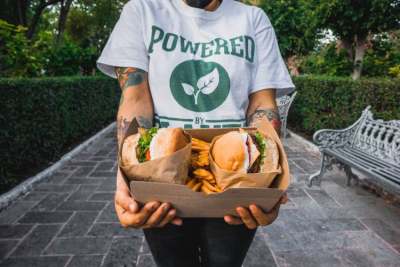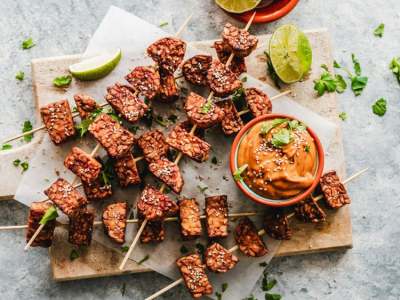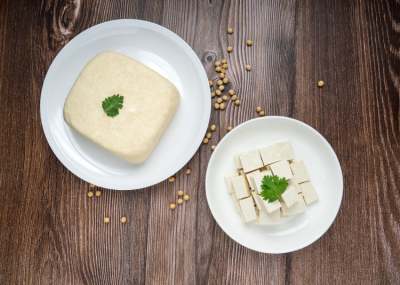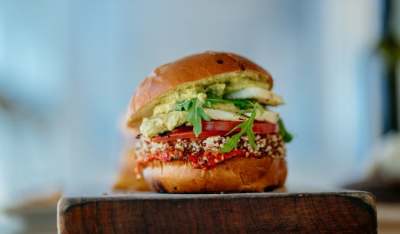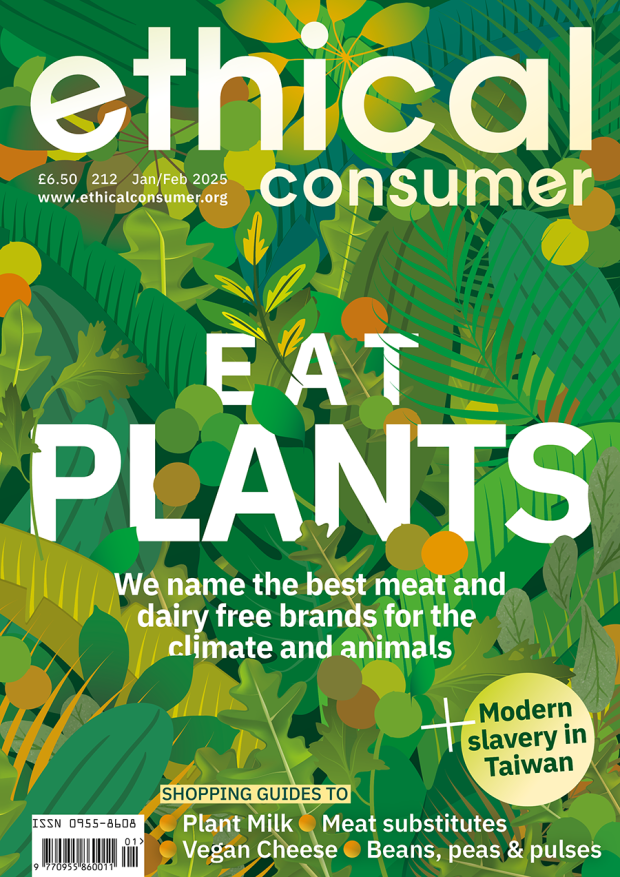Meat free products
This guide includes a full range of meat alternatives, from traditionally processed tofu and tempeh to bean burgers and falafel, as well as the more recently developed products which are sold as indistinguishable from meat.
The brands in the table make vegetarian and vegan meat (and fish) free alternatives. We've included brands that are fully vegan or vegetarian, brands which are vegetarian/vegan but owned by meat companies, and a growing list of vegetarian and vegan meat free brands which are owned by private equity companies.
This guide will help you sort through the meat free food options, showing who owns what, and how ethically they source their main ingredients.
It may be a surprise to discover that not all vegetarian and vegan meat free brands are very ethical: some of the brands we've rated for their ethical policies on climate, workers, tax, animals, palm oil and soya sourcing score very poorly, with two scoring only 10 or below (out of a maximum of 100 points).
But, there are some standout ethical brands in the guide, so there is plenty of choice for making a ethical dinner.
Meat free products aren’t confined to burgers and sausages but include mince, bacon, chicken breast, fish fillets and other alternatives (see the table further down of who makes what).
We have not included supermarkets on the table for space reasons, but our latest guide to supermarkets can be found online.
If you prefer to get your protein from beans and pulses, we have a new guide to these products.


